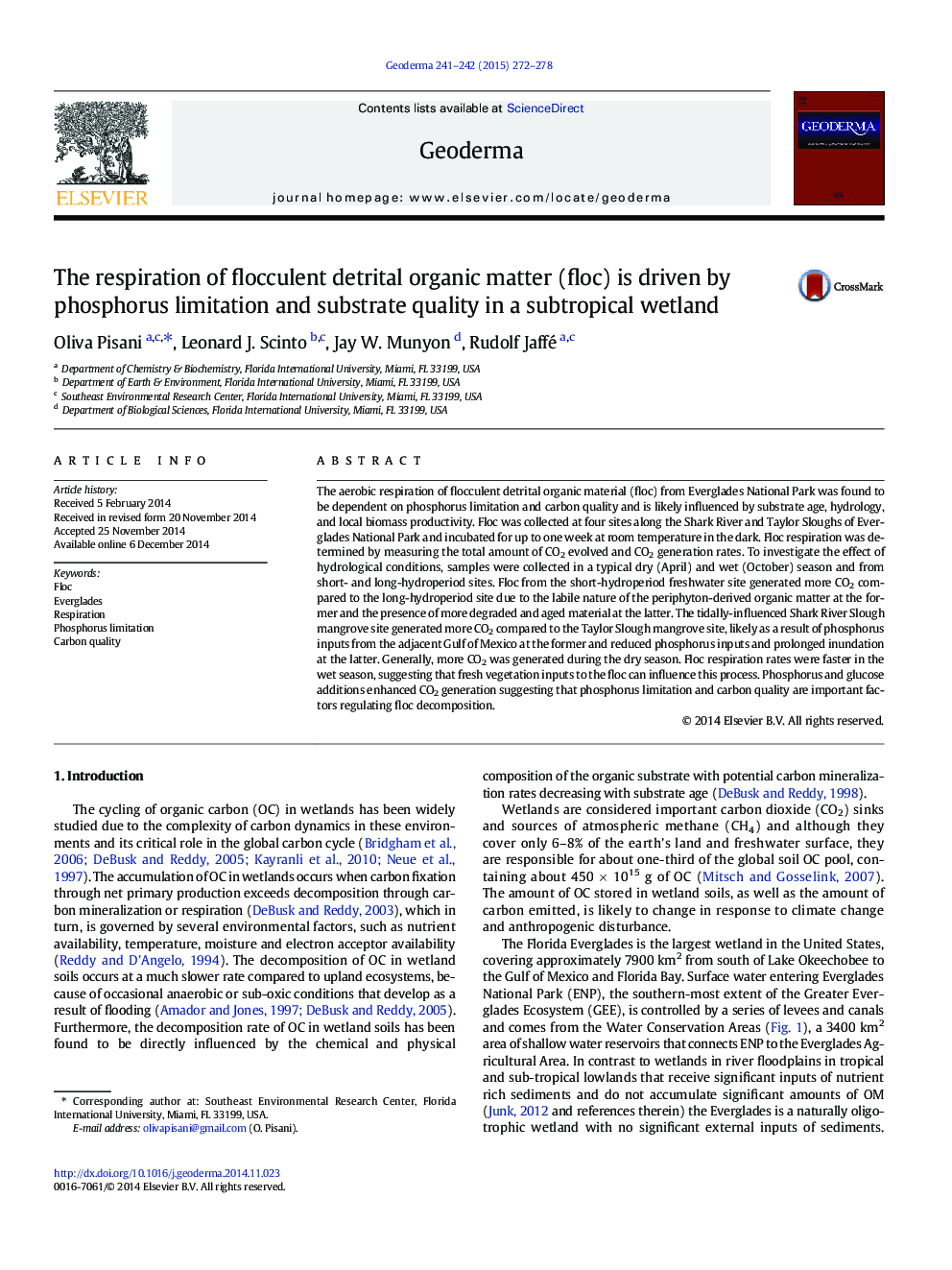| کد مقاله | کد نشریه | سال انتشار | مقاله انگلیسی | نسخه تمام متن |
|---|---|---|---|---|
| 6408616 | 1629465 | 2015 | 7 صفحه PDF | دانلود رایگان |
- Everglades' floc respiration was determined by measuring the total CO2 evolved.
- Floc respiration is dependent on nutrient availability and carbon quality.
- Hydrology and substrate age likely influence floc respiration.
- Respiration rates varied temporally and were faster in the wet season.
- P-limitation and C quality are important factors in controlling floc decomposition.
The aerobic respiration of flocculent detrital organic material (floc) from Everglades National Park was found to be dependent on phosphorus limitation and carbon quality and is likely influenced by substrate age, hydrology, and local biomass productivity. Floc was collected at four sites along the Shark River and Taylor Sloughs of Everglades National Park and incubated for up to one week at room temperature in the dark. Floc respiration was determined by measuring the total amount of CO2 evolved and CO2 generation rates. To investigate the effect of hydrological conditions, samples were collected in a typical dry (April) and wet (October) season and from short- and long-hydroperiod sites. Floc from the short-hydroperiod freshwater site generated more CO2 compared to the long-hydroperiod site due to the labile nature of the periphyton-derived organic matter at the former and the presence of more degraded and aged material at the latter. The tidally-influenced Shark River Slough mangrove site generated more CO2 compared to the Taylor Slough mangrove site, likely as a result of phosphorus inputs from the adjacent Gulf of Mexico at the former and reduced phosphorus inputs and prolonged inundation at the latter. Generally, more CO2 was generated during the dry season. Floc respiration rates were faster in the wet season, suggesting that fresh vegetation inputs to the floc can influence this process. Phosphorus and glucose additions enhanced CO2 generation suggesting that phosphorus limitation and carbon quality are important factors regulating floc decomposition.
Journal: Geoderma - Volumes 241â242, March 2015, Pages 272-278
